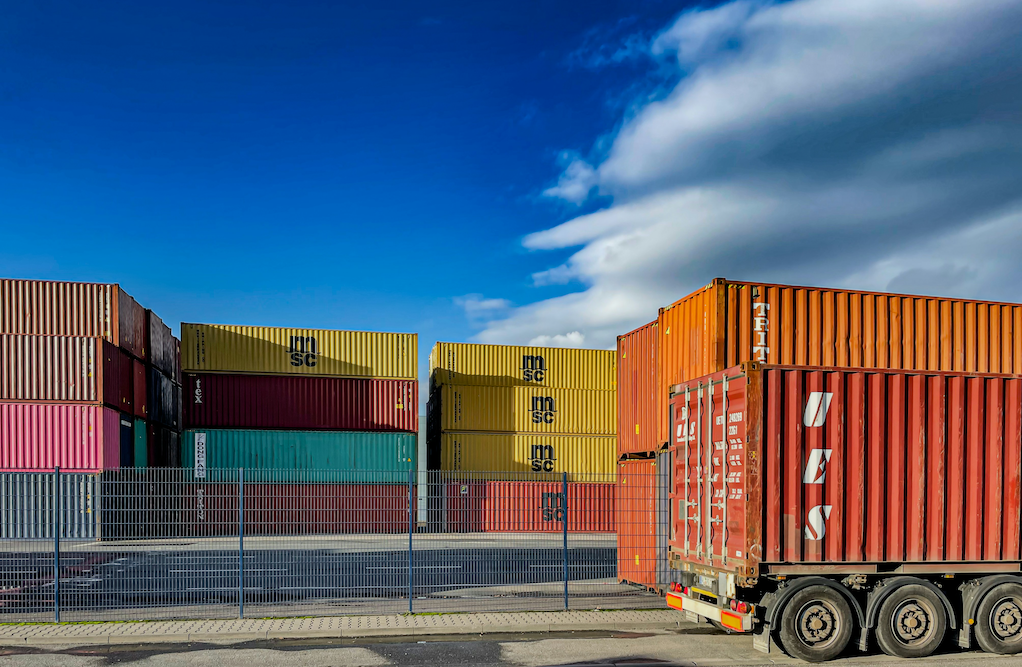From the smartphone in your pocket to the laptop powering your workday, electronics have become the lifeblood of modern society. The United States, with its insatiable appetite for cutting-edge technology, boasts a colossal electronics market valued at US$94.93 billion in revenue in 2024. This figure is projected to see a 4.20% annual growth rate from 2024 to 2029.
Furthermore, online sales channels took up 42.9% of electronics sales in 2024. This figure is expected to increase to 47.6% by 2029, indicating a rise in e-commerce players in the electronics industry.
This demand fuels a vibrant import landscape. Consumer electronics like smartphones lead the charge alongside industrial electronics such as semiconductors and medical devices. China stands as a dominant supplier of electronics to the USA, with other players like Mexico, Vietnam, and South Korea contributing significantly.
From stringent quality checks to intricate customs regulations and potential logistical hurdles, importing electronics into the USA is no small feat. If you’re an electronics importer looking to understand how to enter the USA market, this blog post breaks down what you need to know to ensure a smooth import process for business success in the dynamic electronics market.
Key Agencies to Know When Importing Electronics to The USA
Successfully navigating the import of electronics into the USA involves understanding and complying with the regulations set forth by several key government agencies.
Federal Communications Commission (FCC)
The Federal Communications Commission (FCC) regulates communications by radio, television, wire, satellite and cable throughout the USA.
It also oversees electronic devices that emit radio frequencies (RF), ensuring that they meet safety standards for electromagnetic interference and RF emissions. Common devices in this category include smartphones, Wi-Fi routers, and Bluetooth electronics.
When importing electronics to the USA, compliance with FCC regulations is essential to avoid delays or even rejection of your shipment at customs.
USA Customs and Border Protection (CBP)
The Customs and Border Protection (CBP) serves as the guardian of America’s borders, enforcing USA import laws and facilitating legitimate trade. CBP plays a crucial role in collecting duties and taxes on imported goods, including electronics.
The CBP assesses electronic products for safety, intellectual property rights violations, and adherence to customs regulations. By ensuring compliance, the CBP is instrumental in protecting both consumers and the domestic market.
USA Electronics Import Regulations
Electronics imports are subject to stringent regulations in the USA to safeguard consumer safety, protect the environment, and ensure fair trade practices. Knowing the specific import regulations applicable to your electronics is paramount for a smooth and successful import process.
FCC Requirements
To ensure your electronics comply with the FCC’s requirements, you must adhere to the following:
- FCC Certification and Grant of Equipment Authorization: Electronic devices, especially those emitting RF energy, must undergo testing and obtain either an FCC Certification or a Grant of Equipment Authorization before entering the USA for sale. Such devices include cell phones and Wi-Fi routers. These tests are meant to ensure the devices operate within safe RF exposure limits and do not cause harmful interference with other wireless communications. You are responsible for providing evidence of compliance through FCC IDs or other appropriate documentation.
- Labeling Requirements: Electronic devices that have met FCC standards must bear labels that include the FCC logo, FCC ID, and a statement signifying compliance with FCC rules. These labels must be clearly visible and permanently affixed to the device or its packaging.
Failure to comply with FCC regulations can result in customs clearance delays, fines, and even the seizure of your electronics shipment. By proactively ensuring compliance, you can safeguard your imports from disruptions and protect your reputation in the USA market.
Product Classification, Tariffs, Duties & Taxes
Meticulous attention to product classification is paramount when importing electronics to the USA. The Harmonized Tariff Schedule (HTS) serves as the framework for determining the appropriate tariffs, duties, and taxes applicable to your imported goods. There are specific HTS shipping codes for every product. Knowing where to classify your electronic products can help you avoid delays, penalties, and unnecessary costs.
While the USA does not have a Value-Added Tax (VAT), be prepared to pay import duties on your electronics shipments. Duty rates depend on the HTS code associated with your products. Certain types of electronics may also be subject to excise taxes. By familiarizing yourself with the specific tariffs and taxes applicable to your electronics, you can more accurately calculate your landed cost.
Do also be aware that under Section 301 of the USA’s Trade Act, additional tariffs may be imposed on goods imported from specific countries, such as China. Staying abreast of such trade developments is crucial to ensure accurate cost projections and avoid unexpected financial burdens.
Environment and Safety Standards
The USA prioritizes protecting both consumers and the environment. When importing electronics to the USA, you must comply with the following safety and environmental standards.
- Restriction of Hazardous Substances (RoHS) Directive: The RoHS directive restricts the use of certain hazardous substances in electrical and electronic equipment. Electronics imported into the USA must comply with RoHS limits on substances like lead, mercury, and cadmium.
- Underwriters Laboratories (UL) Certification: UL certification is a widely recognized safety standard for various electronic products, including household appliances, IT equipment, and medical devices. It provides quality assurance to consumers and retailers about the safety of your products, which can help facilitate smoother market entry.
- Energy Efficiency Standards: The USA’s Department of Energy (DOE) sets energy efficiency standards for numerous electronic products. You must ensure your electronics meet the specified efficiency levels and provide relevant documentation, such as the EnergyGuide label. You can also consider pursuing the Environmental Protection Agency’s Energy Star label, a voluntary certification that signifies superior energy efficiency and can enhance your product’s marketability.
- Battery Safety and Environmental Regulations: If your electronics contain batteries, they must meet safety standards in design, testing, and installation. Lithium-ion batteries, in particular, require careful handling and compliance with specific shipping and labeling requirements to prevent potential hazards.
- E-waste Recycling: Certain states in the USA have implemented e-waste recycling laws, mandating the responsible disposal of electronic products at the end of their life cycle. Do familiarize yourself with these regulations and consider incorporating e-waste management practices into your business model if necessary.
By diligently adhering to these environmental and safety standards, you not only ensure the well-being of consumers but also ensure your electronic products can pass through the USA’s borders smoothly.
Streamline Electronic Imports to The USA with CrimsonLogic

The thriving electronics market in the USA presents boundless opportunities for businesses worldwide. Before that, you have to get through complex import regulations and compliance requirements to ensure that you don’t incur costly disruptions.
However, it doesn’t have to be so daunting. CrimsonLogic North America provides the expertise and meticulous attention to detail for a smooth and efficient import process.
We specialize in simplifying the customs compliance aspect of your electronics imports. Our comprehensive solutions, including the E-Commerce Goods Clearance Program, are tailored to meet the unique needs of businesses like yours.
Leverage our expertise and technology to streamline your electronics imports, ensuring compliance, efficiency, and peace of mind. Contact us today to discover how we can empower your business to thrive in the USA’s dynamic electronics market.





